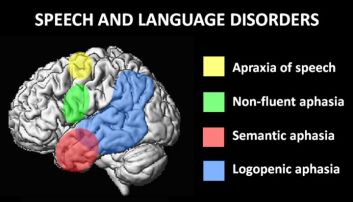Learn about thyroid disorders symptoms and treatments as explained by Red Cover for thyroid disease including how it controls many activities in your body.
What is thyroid?
The thyroid is a gland located below your Adam’s apple. This gland makes thyroid hormone that travels in your blood to all parts of your body. The thyroid hormone controls your body’s metabolism in many ways, including how fast you burn calories and how fast your heart beats.
Women are more likely than men to have thyroid disease. One in eight women will develop thyroid problems during her lifetime. In women, thyroid diseases can cause:
Problems with your menstrual period.
- Your thyroid helps control the menstrual cycle. Whether it’s too much thyroid hormone or too little, it can make the duration of the menstrual cycle very light, heavy, or irregular. Thyroid disease can also cause your period to stop for a few months or longer; a condition called amenorrhea.
- If your body’s immune system causes thyroid disease, other glands, including your ovaries, may be involved. This can lead to early menopause which is before age 40.
Problems getting pregnant.
- Once thyroid disease affects the menstrual cycle, it also affects ovulation. This condition can make it more difficult for you to get pregnant.
Problems during pregnancy
- Thyroid problems during pregnancy can cause maternal and infant health problems.
- Sometimes, symptoms of thyroid problems are confused with menopause symptoms. Thyroid disease, especially hypothyroidism, is more likely to develop after menopause.
Hypothyroidism
Hypothyroidism is when your thyroid is making not sufficiently enough thyroid hormone. It is also known as an underactive thyroid. This slows down many of your body’s functions, such as your metabolism.
Hypothyroidism also can be caused by:
- Hyperthyroidism treatment (radioiodine)
- Radiation treatment of certain cancers
- Thyroid removal

Hyperthyroidism
Hyperthyroidism, or overactive thyroid, causes the thyroid to make more thyroid hormones than your body needs. This speeds up your body’s many functions, such as your metabolism and heart rate. The common cause of hyperthyroidism is Graves’ disease. Graves’ diseaseis a problem with the immune system.
How can thyroid disorders happen?
When your thyroid does not produce enough thyroid hormones, the balance of the chemical reaction in your body can become angry. There are several reasons, including autoimmune diseases, hyperthyroidism treatments, radiation therapy, thyroid surgery, and certain medications.
Autoimmune disease
People who develop a particular inflammatory disorder have the most common cause of hypothyroidism. Autoimmune disorders occur when your immune system produces antibodies that attack your tissues. Sometimes this process involves your thyroid gland. Most likely, autoimmune diseases result from more than one factor. But it happens, these antibodies affect the thyroid’s ability to produce hormones.
Treatment for hyperthyroidism
People who produce too much thyroid hormone or are called as hyperthyroidism are often treated with radioactive drugs or anti-thyroid drugs to reduce and normalise their thyroid function. However, in some cases, hyperthyroidism treatment can lead to permanent hypothyroidism.
Radiation therapy
The rays used to treat the head and neck can damage your thyroid gland and can lead to hypothyroidism.
Thyroid surgery
Removing all or a large portion of your thyroid gland can diminish or halt hormone production.
Medications
Some medications may contribute to hypothyroidism. A drug like lithium, which is used to treat specific psychiatric disorders. If you are taking medication, ask your doctor about its effect on your thyroid gland.
Which doctor should you find?
Your primary care physician can treat and monitor your condition, but some situations may require attention from endocrinologists, a doctor who specialises in the endocrine system, which includes the body’s hormone-secreting glands, such as thyroid. In addition to regular monitoring by primary care physicians, see endocrinologist advised:
- If your symptoms persist. If you have taken medication to replace your thyroid hormone for a while, but your symptoms persist, you may want to see endocrinologists for a second opinion. Some people with hypothyroidism have a hard time finding the concentration of thyroid hormone that works best for them, and experts may be required.
- If you have a thyroid nodule or lump. Your thyroid gland is located on the front of your neck, just below your voice box. If you have a lump or growth in your thyroid, an endocrinologist needs to investigate.
Thyroid disorders symptoms and treatments
Initially, you may not be able to see signs of thyroid disease, such as fatigue and weight gain, or you can only relate it to getting older. But since your metabolism is slow, you can develop clearer signs and symptoms. Symptoms may include:
- Puffy face
- Hoarseness
- Muscle weakness
- Elevated blood cholesterol level
- Muscle aches, tenderness and stiffness
- Pain, stiffness or swelling in your joints
- Heavier than normal or irregular menstrual periods
- Thinning hair
- Slowed heart rate
Treatments for thyroid disease
Thyroid disorders can be treated with medications or, in some cases, surgery. Treatment will depend on the particular disease of the thyroid. When hyperthyroidism is present, using medications can decrease the production of thyroid hormone or prevent its release from the gland.
If hyperthyroidism is not managed with medications, radioactive ablation can be performed. Ablation involves giving doses of iodine labelled with radioactivity that selectively destroys the thyroid tissue. Surgery is one of the ways to treat this disease when there is a possibility of thyroid cancer. If the gland is removed entirely, the person will need to take synthetic thyroid hormone for life.
In most cases, thyroid disorders can be managed well with medical treatment and are not life-threatening. Some situations may need surgery. Moreover, the outlook for most patients with thyroid cancer is also great, although those who had thyroid cancer that has spread everywhere in the body have a worse prognosis.
How much is the cost to treat thyroid disease?
For patients covered by health insurance, the usual cost of hypothyroidism treatment will include a doctor’s copy and a prescription drug copy. Health insurance usually covers treatment of hypothyroidism.
Patients with hypothyroidism should visit their doctor regularly for follow-up and monitoring as often as the doctor recommends. One of the ways to know the overall cost of the treatments for thyroid disorder is best to check with the hospital.
Who can help you with this cost?
Financial Security – It is There When Needed
Levine can help you to protect yourself and the future of your loved ones. Get immediate financial security. Don’t touch your savings. Let insurance provide it.
She can help provide financial security in times of hardship and will be able to ease the financial burden of your dependents in your absence.
Contact our AIA INSURANCE AGENT LEVINE LEE to get in touch with us and start your personal coverage, group coverage or choose your plan now. Get covered correctly. Be advised correctly. Call Levine Lee (+6012-684 0948) today to be advised on the best insurance protection personalized for you. Or send us the form below on your interest.

At Red Cover Life Planning, we emphasize our people- helping them grow, expanding their abilities, and discovering new opportunities. Join us now to be part of our team and story.








